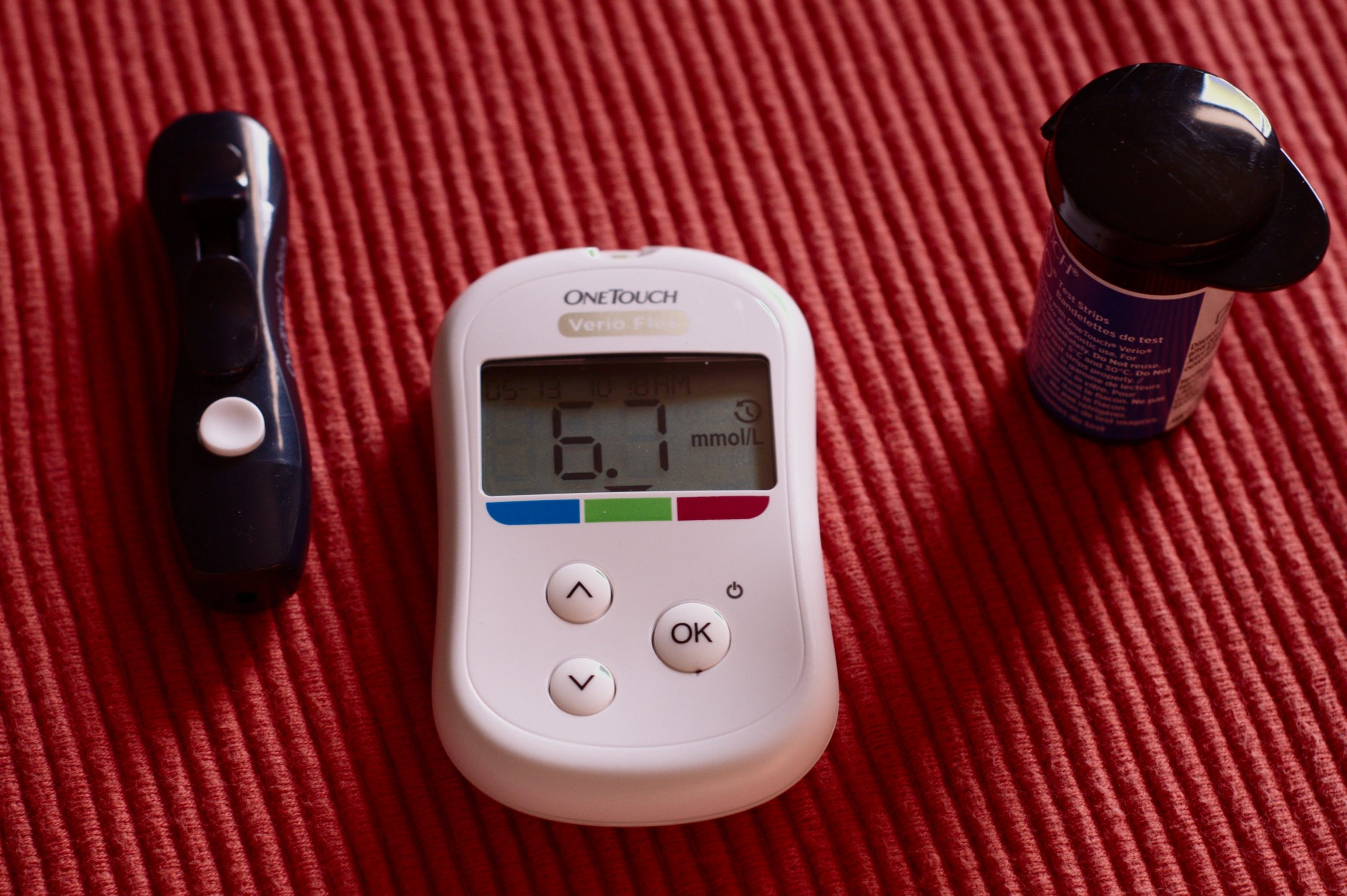Collaborative Projects

Psychological Impacts of COVID-19 On Canadians
This is a multi-wave study examining mental health, substance use, social support, social isolation, adherence to government guidelines (and more) through the use of online surveys and targeted interviews. Groups that may be disproportionately impacted by COVID-19 are of special interest in this study.
Importantly, we are learning about coping of Canadians and plan to use this information in allocating mental health resources to those who need it most.
Click here to learn more about this research!
Publications
Gicas, K. M., Paterson, T. S. E., Narvaez Linares, N. F., & Loken Thornton, W. J. (2021). Clinical psychological assessment training issues in the COVID-19 era: A survey of the state of the field and considerations for moving forward. Canadian Psychology / Psychologie canadienne, 62(1), 44–55. DOI: 10.1037/cap0000258
Gregory, M. A., Legg, N. K., Senay, Z., Barden, J. L., Phiri, P., Rathod, S., Turner, B. J. & Paterson, T. S. E. (2021). Mental health and social connectedness across the adult lifespan in the context of the COVID-19 pandemic. Canadian Journal on Aging/La Revue canadienne du vieillissement, 40(4), 554-569. DOI: 10.1017/S0714980821000477
Rathod, S., Pallikadavath, S., Graves, E., Rahman, M. M., Brooks, A., Rathod, P., Bhargava, R., Irfan, M., Aly, R., Mohammad Saleh Al Gahtani, H., Salam, Z., Chau, S. W. H., Paterson, T. S. E., Turner, B., Gorbunova, V., Klymchuk, V., & Phiri, P. (2023). Effects of cumulative COVID-19 cases on mental health: Evidence from multi-country survey. World journal of psychiatry, 13(7), 461–477. DOI: 10.5498/wjp.v13.i7.461
Turner, B. J., Switzer, A. C., Welch, B. E., Legg, N. K., Gregory, M. A., Phiri, P., Rathod, S., & Paterson, T. S. E. (2023). Psychological mediators of the associations between pandemic-related stressors and suicidal ideation across three periods of the COVID-19 pandemic in Canada. Journal of Affective Disorders, 324, 566–575. DOI: 10.1016/j.jad.2022.12.074
Turner, B. J., Welch, B. E., Legg, N. K., Phiri, P., Rathod, S., & Paterson, T. S. E. (2023). Psychological impacts of the COVID-19 Pandemic on Canadian Healthcare Workers: A Case Control Comparison From Three Cross Sectional Surveys. Journal of Occupational & Environmental Medicine, 65(9), e580–e586. DOI: 10.1097/JOM.000000000000291\
Gregory, M. A., Reeves, J. T. H., Danyluk, A., Legg, N. K., Phiri, P., Rathod, S., Turner, B. J., & Paterson, T. S. E. (2024). From facts to feelings: Navigating the complexities of COVID-19 restrictions, perceptions, and mental well-being.Psychiatry Research, 334, 115802. https://doi.org/10.1016/j.psychres.2024.115802

Covid-19 Vaccine Hesitancy among Canadians
Overall, this research explores the prevalence, correlates, and drivers of COVID-19 vaccine hesitancy in the Canadian population.
The three goals of this research were to 1) investigate the prevalence of COVID-19 vaccine hesitancy and rejection; 2) examine demographic, health-, and employment-related correlates of vaccine hesitancy; and 3) examine qualitative drivers of vaccine hesitancy among the Canadian population.
Publications
Legg, N. K., Switzer, A. C., Senay, Z., Reeves, J. T. H., Phiri, P., Rathod, S., Paterson, T. S. E., & Turner, B. J. (2023). Prevalence, correlates, and drivers of COVID-19 vaccine hesitancy among Canadians. Canadian Journal of Behavioural Science / Revue Canadienne Des Sciences Du Comportement. DOI: 10.1037/cbs0000377.supp

Neuropsychological Consequences of Long-COVID
The aim of this research is to understand the neuropsychological symptoms experienced by individuals with Long-COVID. With these findings, we hope to contribute to the development of interventions and supports available to impacted individuals.
Our goals are to 1) establish consistent definitions and core outcomes of Long-COVID 2) establish valid diagnostic and prognostic tools, 3) characterize subtypes and phenotypes of Long-COVID , 4) develop national recommendations for rehabilitation pathways for persons with Long COVID, 5) determine the feasibility of virtual care solutions (in particular, Cogniciti’s Brain Health Assessment) at addressing cognitive symptoms.
Click here to learn more about this research!

Youth Vaccine Confidence Project
We invited Canadian Youth (ages 14-25 years old) to complete an online survey to understand reasons a person may or may not choose to get a COVID-19 vaccine. Results from this survey will then be used to inform development of a youth-focused app and social media ad campaign that aim to increase vaccine confidence among Canadian youth.
With the help of our youth advisory group, we hope to design an intervention to disseminate the findings of our study to the public and Canadian Youth.

Interindividual and intraindividual variability in amnestic mild cognitive impairment (aMCI) measured with an online cognitive assessment
Collaborative Project
Mean cognitive performance is worse in amnestic mild cognitive impairment (aMCI) compared to control groups. However, studies on variability of cognitive performance in aMCI have yielded inconclusive results, with many differences in variability measures and samples from one study to another.
The current study demonstrates that self-administered online tests can be used to remotely assess different types of variability in people at risk of Alzheimer`s. Our findings show small but significantly more interindividual differences in people with aMCI. This diversity is considered as ‘noise’ in standard assessments of mean performance, but offers an interesting and cognitively informative ‘signal’ in itself.
Publications
Paterson, T. S. E., Sivajohan, B., Gardner, S., Binns, M. A., Stokes, K. A., Freedman, M., Levine, B. & Troyer, A. K. (2022). Accuracy of a self-administered online cognitive assessment in detecting amnestic mild cognitive impairment. The Journals of Gerontology: Series B, 77(2), 341-350. DOI: 10.1093/geronb/gbab097
LaPlume, A. A., Paterson, T. S. E., Gardner, S., Stokes, K. A., Freedman, M., Levine, B., Troyer, A. K., & Anderson, N. D. (2021). Interindividual and intraindividual variability in amnestic mild cognitive impairment (aMCI) measured with an online cognitive assessment. Journal of Clinical and Experimental
Graduate Research

Well-being and Cognitive Status as Moderators of the Association Between Parkinsonism and Cognitive Function
Investigating Graduate Student: Alison Chung
Alison’s study investigated the modulating role of psychological well-being on parkinsonism and cognitive function. The results of this study found that there was no modulating influences of psychological wellbeing or cognitive status on the within-person coupling of parkinsonism and cognition. However, additional research is needed to further explore the role of psychological wellbeing on parkinsonism.

Personality Traits as Predictors of Domain-Specific Cognitive Decline
Investigating Graduate Student: Morgan Schaeffer
The purpose of this study is to examine Big-5 personality traits (Openness, Conscientiousness, Extraversion, Agreeableness, and Neuroticism) as predictors of cognitive decline. Specifically, this project aims to determine the association between personality traits and the onset of specific dementia and pre-dementia syndromes (e.g., Alzheimer’s dementia, Mild Cognitive Impairment, Subjective Cognitive Decline). A secondary aim of this study is to determine which personality traits predict declines in memory vs. declines in other cognitive domains (e.g., executive functions, language, etc.). Because personality traits are generally stable over the lifespan, they may be used to identify risk during early and middle adulthood (before symptoms of dementia-related cognitive decline typically manifest). The Data for this study will be obtained from the Einstein Aging Study (EAS) database, a large-scale population-based cohort study based in the United States.
Publications
Schaeffer, M. J., MacDonald, S. W., & Paterson, T. S. (2024). Premorbid personality traits as predictors for incident predementia syndromes: a multistate model approach. Journal of the International Neuropsychological Society, 1-11.
Honours Research

The Mental Health of Undergraduate Students and the Impact of COVID-19
Investigating Honours Student: Jennifer Reeves
This study is looking to examine the mental health of undergraduate students, including the impact of self-care habits, hobbies, and COVID-19. Additionally, this study will examine how mental health fluctuates between the years of study. Previous researchers have found differing results in regards to the timing of peaks in distress, which this study hopes to address.
Status: Survey now closed

Early Caregiver Support and Type 1 Diabetes Distress in a COVID-19 Context
Investigating Honours Student: Taylor McEachnie
The purpose of this study is to improve the understanding of diabetes distress in emerging adults with type 1 diabetes (T1D) through its relationship to early caregiver support. In addition, it will investigate how diabetes distress interacts with the mental health impacts of COVID-19. The psychosocial experiences of type 1 diabetes are under-represented in research, so participation will serve to inform how mental health outcomes for emerging adults with T1D can be improved.
Status: Survey now closed

The Effects of Chronic Illness on COVID-19 Vaccine Hesitancy In Canadian Youth
Investigating Honours Student: Christina Beck
This study investigates the relationship between pre-existing chronic illness and COVID-19 vaccine hesitancy through national data collected in the Youth Vaccine Confidence survey. Beyond the presence of chronic physical illness, the study looks at the presence of mental illness, government mistrust, and medical mistrust as possible avenues that may contribute to vaccine hesitancy in chronically ill Canadian youth. The ultimate purpose of this project is to better understand vaccination
behaviours of those vulnerable to developing a severe COVID-19 infection.
For additional information about any of our findings, please contact us